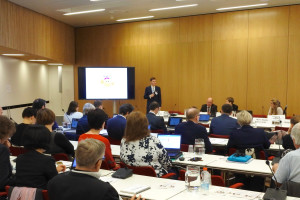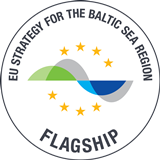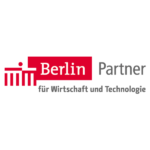PA “Health” strengthens the Policy-to-project-to-policy cycle
The Northern Dimension Partnership in Public Health and Social Well-being (NDPHS), in its capacity as the Policy Area “Health” Coordinator within the EU S trategy of the Baltic Sea Region (EUSBSR), successfully organized yet another event – this time a conference promoting the policy-to-project-to-policy cycle held on 28 April 2016 and hosted by the WHO Regional Office for Europe at its headquarters in Copenhagen, Denmark. The event brought together 35 policy/decision-makers, project implementers as well as representatives of academia and funding organizations – all of them interested in exchanging ideas and discussing the expectations they have one from another regarding regional policy and project-related issues.
trategy of the Baltic Sea Region (EUSBSR), successfully organized yet another event – this time a conference promoting the policy-to-project-to-policy cycle held on 28 April 2016 and hosted by the WHO Regional Office for Europe at its headquarters in Copenhagen, Denmark. The event brought together 35 policy/decision-makers, project implementers as well as representatives of academia and funding organizations – all of them interested in exchanging ideas and discussing the expectations they have one from another regarding regional policy and project-related issues.
Eight presentations and the discussions following them addressed and underlined that experts need to keep in mind the importance of tailoring their projects to the politically agreed regional priorities, as well as as to ensure that relevant project results are brought to the attention of policy and decision-makers. In addition, representatives of already completed projects shared their experiences on how to ensure both a close link to the policy level throughout the project lifecycle, and the relevance of key project outcomes for policy and decision-makers.
Equally appreciated was the practical information about upcoming funding calls for health-related projects in the Baltic Sea Region and beyond, which was presented by the NDPHS Secretariat and representatives of funding programmes. Those interested in implementing regional projects additionally benefited from discussing their own project concepts during bilateral consultations with the Joint Secretariat of the Interreg Baltic Sea Region Programme 2014-2020 held on the sidelines of the event.
The participants agreed that the policy-to-project-to-policy approach is indispensable in making meaningful and lasting contributions to systemic improvements in the Baltic Sea Region and, in this way, to successfully addressing regional challenges to health and social well-being. In this regard the conference offered several interesting insights and useful advice. Furthermore, the event presented a good opportunity to discuss possible future projects and establish new contacts.
The presentations given during the conference, the Moderator’s Conclusions as well as other documents are available from the event’s page on the NDPHS website: http://www.ndphs.org/?mtgs,ppp_conference.
We hope the conference will have its follow-up in several successful regional initiatives closely following the event’s conclusions, and we sincerely thank the Interreg Baltic Sea Region Programme 2014-2020 and the WHO Regional Office for Europe for their support in making this event possible.
NDPHS Secretariat


ScanBalt News
17 April 2024
COBIOE project consortium opens an interconnection platform for the European biomanufacturing sector
12 March 2024
19th National Conference on Health Economy 2024 | 30-31 May 2024 | Mecklenburg-Vorpommern, Germany














